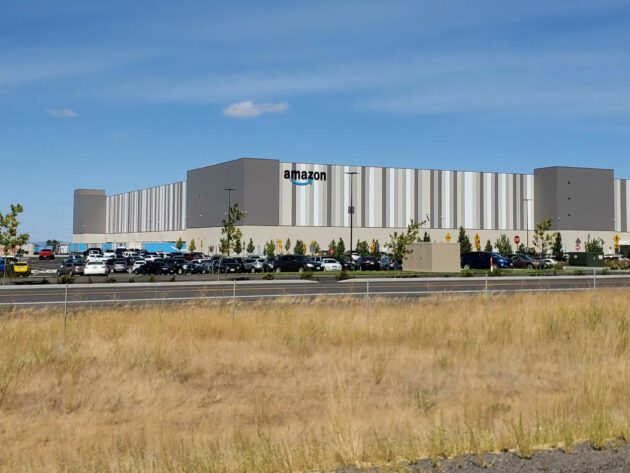
Stuart Applebaum has heard the argument before. That, perversely, a union organizer should quietly root against non-union higher wages or better working conditions because it makes activating workers toward unionization more difficult because they have less to fight for.
But Applebaum, the union leader who is trying to organize Amazon warehouse workers in Bessemer, Ala., doesn’t buy that theory. Which is why he was excited when he saw that California lawmakers have attempted to put into law the same work-rate protections he’s been pushing for workers in the Deep South.
“Look, we want to make workers lives better,” said the president of the Retail, Wholesale and Department Store Union. “The legislation is good. But a union contract is better.”
Last week, California lawmakers approved legislation that would give Amazon and other warehouse workers the legal right to push back on work-rate demands, such as those common in Amazon warehouses. If signed into law, the measure would require public reporting on speed quotas — something that has been blamed for Amazon’s unusually high employee attrition rate — as well as public disclosure on how those work-rate algorithms impact employee heath.
An Amazon spokesperson could not be reached for comment regarding the new California warehouse worker protections.
In California, the measure is part of a battery of legislative and legal efforts to reign in Amazon, the country’s second-largest employer with 950,000 workers stateside. From the state’s antitrust work targeting the online giant, to its congressional delegation’s push in Washington, D.C., to blame the company for propelling the anti-vaccination movement, Amazon is finding it hard to make government friends in one of its largest domestic markets.
None of it, however, seems to be slowing the company down much. On Tuesday, Amazon announced that it is hiring an additional 125,000 people throughout the U.S. in mostly warehouse-related jobs. This is in addition to the 40,000 corporate and tech jobs the company had announced adding in early September.
Additionally, the company pointed to a modified pay scale with a starting wage between $18 and $22.50 per hour in addition to its standard benefits package.
“Before Amazon, I was at a car wash making $9 an hour. Then I came to Amazon and I started earning $15 an hour — it was life-changing for me,” said Leonardo, an operations employee at an Amazon fulfillment center in Miami in a statement provided by the company.
“This is the first time in my life that I’ve had dental insurance, vision insurance, and life insurance. And now that I have it here, I feel really good.”
But these changes within Amazon warehouses would not have happened without the push by the unions and state and federal regulators, Applebaum and other labor activists have said. This is why, Applebaum added, he does not think that the California warehouse-worker-friendly legislation will have much of an impact on union organizing. There are so many issues at stake within the company, he said.
“First, let me say we applaud the California lawmakers in approving the legislation. Workers need transparency about expectations at work,” he said. “But there are so many issues that need to be addressed.”
In Bessemer, the RWDSU attempted to organize nearly 6,000 warehouse workers in what would have been Amazon’s first unionized shop. Organizers attempted to seize on the warehouse’s high attrition rate — estimated by the union at 150% annually — and pay rates that were lower when compared to other local warehouses and the same work-rate formulas addressed in the California legislation.
While the union lost the initial worker vote to organize by a 2-1 margin in April, soon after the election a National Labor Relations Board hearing officer said Amazon stepped outside allowable guidelines and improperly pressured Alabama warehouse workers against unionizing the Bessemer fulfillment warehouse. Because of that, the hearing offer said in a report, the election should be redone.
An NLRB regional director is expected to soon make a decision on whether or not to hold a second election. But another vote is no guarantee of union success. Extenuating circumstances aside, the first vote failed by a wide margin. And the company’s high attrition rate keeps the pool of eligible voters small.
Even so, Applebaum sees the California legislation, the Congressional antitrust package, and the fight in Alabama as all part of the same growing idea: That government needs to step in and protect workers where Amazon will not.
“These are not random events,” he said. “People are seeing Amazon in a new light.”





